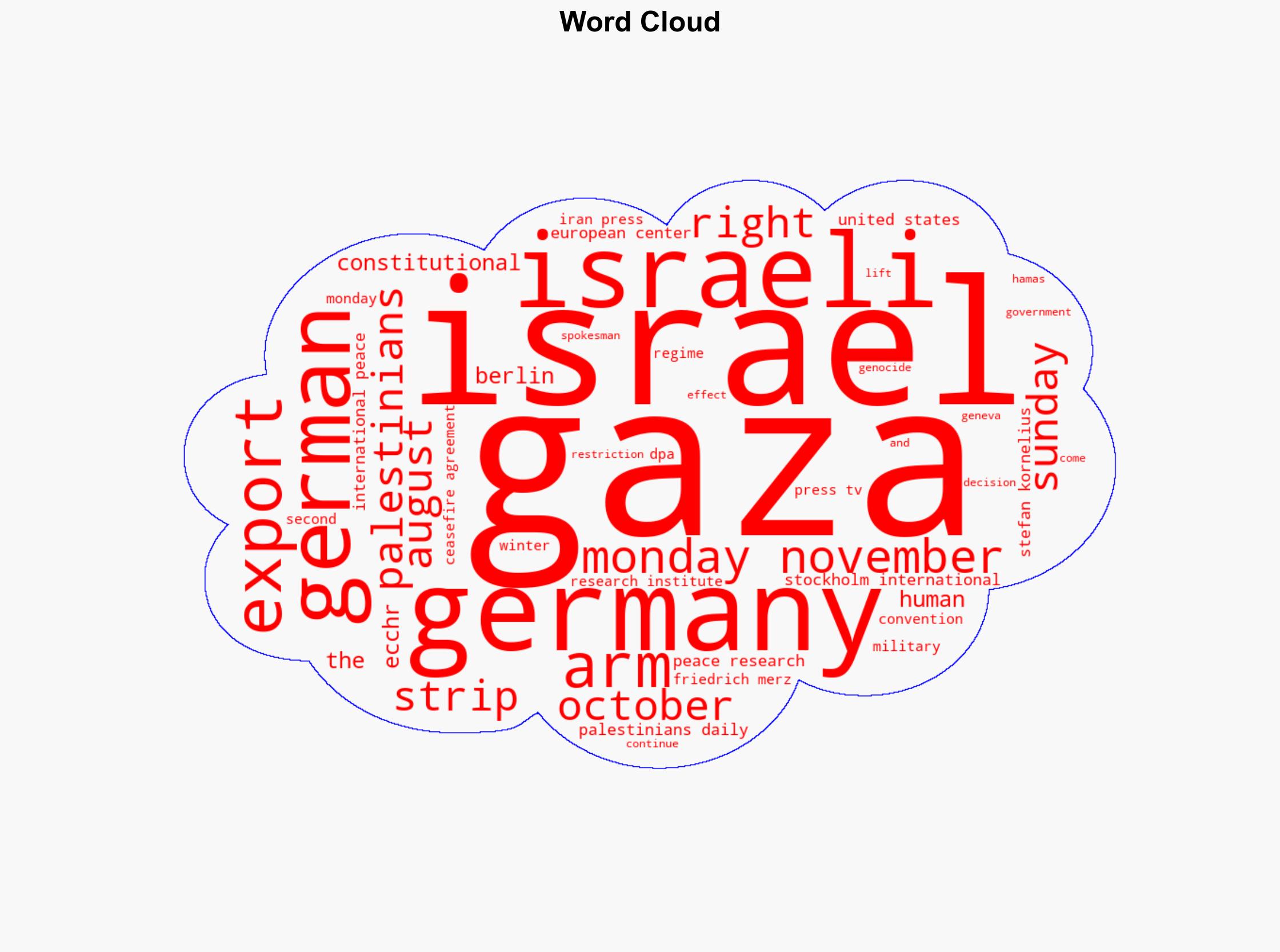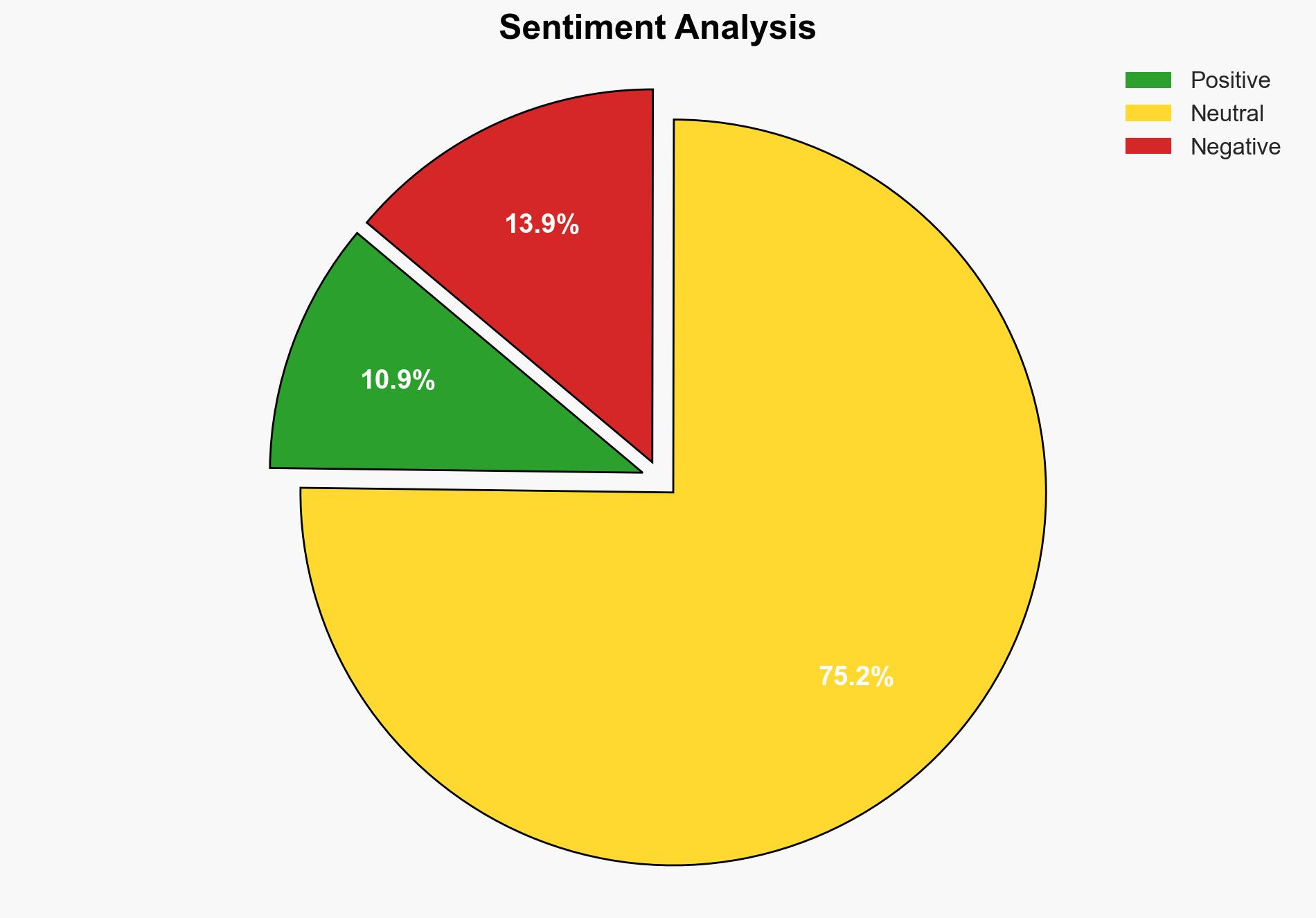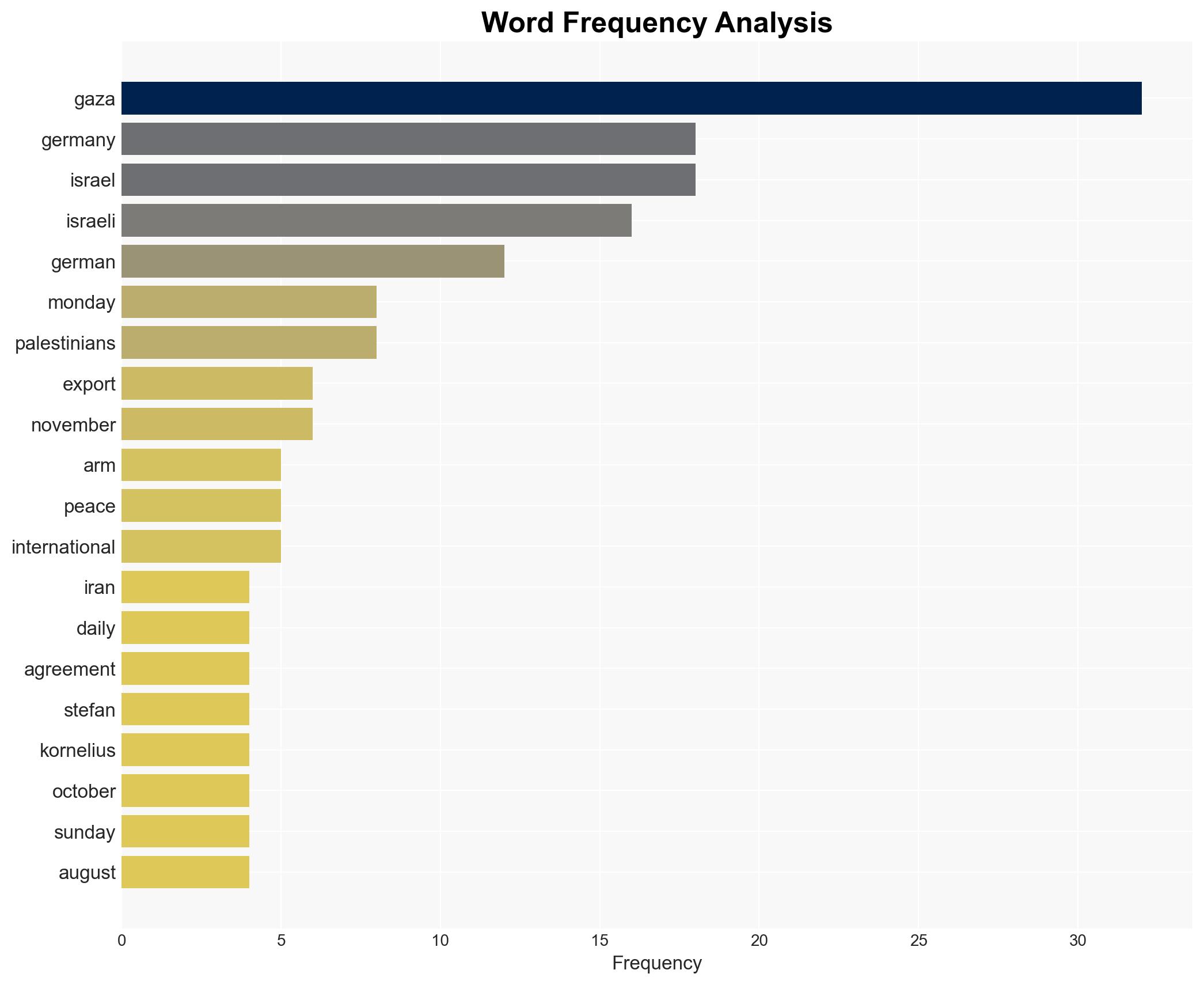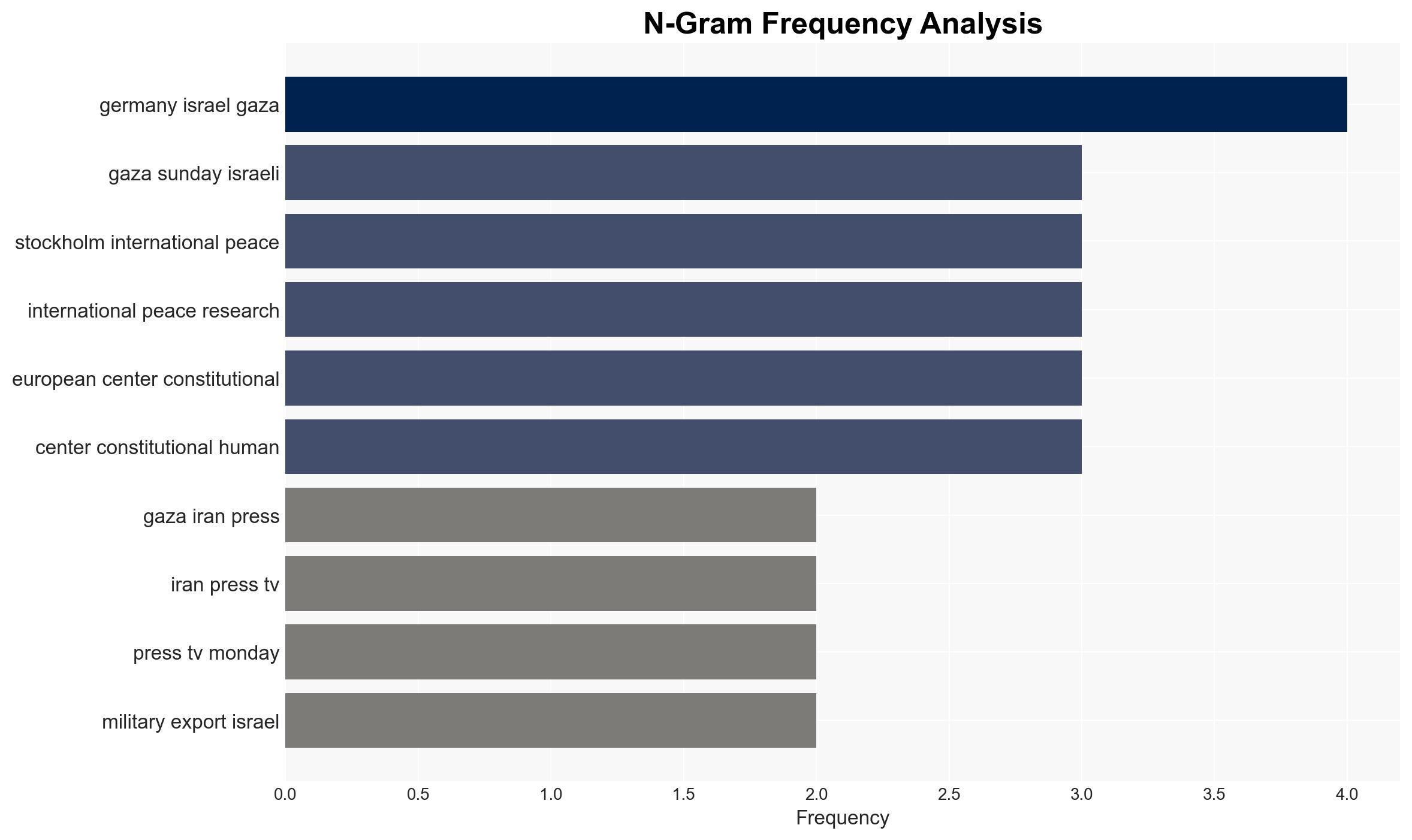Germany lifts arms export restrictions to Israel despite continued genocide in Gaza – Globalsecurity.org
Published on: 2025-11-18
AI-powered OSINT brief from verified open sources. Automated NLP signal extraction with human verification. See our Methodology and Why WorldWideWatchers.
Intelligence Report:
1. BLUF (Bottom Line Up Front)
Germany’s decision to lift arms export restrictions to Israel amidst ongoing conflict in Gaza is likely driven by geopolitical alliances and strategic interests, rather than humanitarian concerns. This move could exacerbate tensions in the region and strain Germany’s international relations. Confidence Level: Moderate.
2. Competing Hypotheses
Hypothesis 1: Germany’s decision is primarily influenced by strategic alliances with Israel and the United States, prioritizing geopolitical stability and defense cooperation over humanitarian concerns.
Hypothesis 2: The decision is a response to perceived improvements in the ceasefire situation and an effort to support Israel’s security needs, with the expectation of future humanitarian improvements in Gaza.
Assessment: Hypothesis 1 is more likely given Germany’s historical defense ties with Israel and the strategic importance of maintaining strong alliances in the region. The timing of the decision, despite ongoing violence, suggests a prioritization of geopolitical interests over humanitarian considerations.
3. Key Assumptions and Red Flags
Assumptions: It is assumed that Germany’s decision is influenced by its strategic alliances and defense commitments. Another assumption is that the ceasefire is not effectively enforced, as indicated by ongoing violence.
Red Flags: The decision contradicts previous international agreements and humanitarian principles, raising concerns about Germany’s commitment to international law. The source of information (Iran Press TV) may have inherent biases against Israel, potentially skewing the narrative.
4. Implications and Strategic Risks
The decision could lead to increased regional instability, as it may embolden Israeli military actions and provoke retaliatory measures from Palestinian groups. This could escalate into broader regional conflicts, involving neighboring countries and affecting global security dynamics. Economically, it may impact Germany’s relations with other EU countries and international bodies concerned with human rights.
5. Recommendations and Outlook
- Actionable Steps: Germany should engage in diplomatic efforts to reinforce ceasefire agreements and promote humanitarian aid to Gaza. Additionally, Germany should communicate transparently about its decision to mitigate international backlash.
- Best Scenario: The decision strengthens Germany-Israel relations without significant backlash, leading to improved security cooperation and eventual stabilization in Gaza.
- Worst Scenario: The decision exacerbates regional tensions, leading to increased violence and international condemnation of Germany’s actions.
- Most-likely Scenario: Germany faces diplomatic challenges but manages to maintain its strategic alliances, with ongoing tensions in Gaza.
6. Key Individuals and Entities
Stefan Kornelius (German Government Spokesman), Friedrich Merz (German Chancellor), Israeli Government, Hamas.
7. Thematic Tags
National Security Threats, Geopolitical Alliances, Humanitarian Concerns, International Relations, Middle East Conflict
Structured Analytic Techniques Applied
- Cognitive Bias Stress Test: Expose and correct potential biases in assessments through red-teaming and structured challenge.
- Bayesian Scenario Modeling: Use probabilistic forecasting for conflict trajectories or escalation likelihood.
- Network Influence Mapping: Map relationships between state and non-state actors for impact estimation.
Explore more:
National Security Threats Briefs ·
Daily Summary ·
Support us





